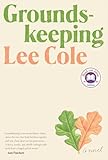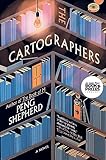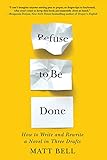We wouldn’t dream of abandoning our vast semi–annual Most Anticipated Book Previews, but we thought a monthly reminder would be helpful (and give us a chance to note titles we missed the first time around). Here’s what we’re looking out for this month. Let us know what you’re looking forward to in the comments!
Want to know about the books you might have missed? Then go read our most recent book preview. Want to help The Millions keep churning out great books coverage? Then sign up to be a member today.
Disorientation by Elaine Hsieh Chou: An Asian American PhD student desperate to claw her way out of academic hell? Sign me up, please! Even better, Alexander Chee calls this an “Asian American literary studies whodunnit.” Ingrid Yang finds herself in the midst of solving a mystery tied to a late canonical Chinese poet that leaves her questioning everything from her romantic life to her academic career. Oh, and her best friend is named Eunice Kim. For everyone with a Eunice Kim in their life, let’s kick off our inaugural book club with Disorientation. I’ll bring the soju. (Kate)
 Ancestor Trouble by Maud Newton: Essayist and critic Newton’s first book length work is memoir, a fascinating combination of a journey to find out more about the flamboyant characters in her family going back generations, mixed seamlessly with “America’s Ancestry Craze,” her Harper’s article about the genealogy craze that has become a serious even all-consuming hobby for many Americans. An unflinching exploration into the history of a troubled family tree and the universal but also peculiarly American need to discover “roots.” (Marie)
Ancestor Trouble by Maud Newton: Essayist and critic Newton’s first book length work is memoir, a fascinating combination of a journey to find out more about the flamboyant characters in her family going back generations, mixed seamlessly with “America’s Ancestry Craze,” her Harper’s article about the genealogy craze that has become a serious even all-consuming hobby for many Americans. An unflinching exploration into the history of a troubled family tree and the universal but also peculiarly American need to discover “roots.” (Marie)
 Groundskeeping by Lee Cole. This debut coming-of-age novel is a love story set in Kentucky during the run-up to the 2016 election. It centers on Owen Callahan, an aspiring writer who moves back home to Kentucky to live with his Trump-supporting uncle and grandfather. He takes a job as a groundskeeper at a local college, in exchange for writing classes. There he meets Alma Hazdic, a writer in residence who hails from a Boston, and whose immigrant family is much more liberal than Owen’s. They are from different worlds, and as they begin to fall in love, Alma struggles to understand Owen’s complicated relationship with his conservative relatives and his home state. (Hannah)
Groundskeeping by Lee Cole. This debut coming-of-age novel is a love story set in Kentucky during the run-up to the 2016 election. It centers on Owen Callahan, an aspiring writer who moves back home to Kentucky to live with his Trump-supporting uncle and grandfather. He takes a job as a groundskeeper at a local college, in exchange for writing classes. There he meets Alma Hazdic, a writer in residence who hails from a Boston, and whose immigrant family is much more liberal than Owen’s. They are from different worlds, and as they begin to fall in love, Alma struggles to understand Owen’s complicated relationship with his conservative relatives and his home state. (Hannah)
 Eleutheria by Allegra Hyde: A naïve young woman with idealistic hopes of fighting climate change follows a charismatic leader to a remote island in the Bahamas. She joins a band of eco-warriors only to discover that things aren’t what she expected. This debut novel follows Hyde’s 2016 story collection, Of This New World, and wrestles with similar themes of utopia. (Hannah)
Eleutheria by Allegra Hyde: A naïve young woman with idealistic hopes of fighting climate change follows a charismatic leader to a remote island in the Bahamas. She joins a band of eco-warriors only to discover that things aren’t what she expected. This debut novel follows Hyde’s 2016 story collection, Of This New World, and wrestles with similar themes of utopia. (Hannah) Tell Me an Ending by Jo Harkin: In Jo Harkin’s dystopian debut, a tech company named Nepenthe has been deleting people’s memories (à la Eternal Sunshine of the Spotless Mind) for the past 20 years. When Nepenthe becomes embroiled in scandal regarding trace memories, four characters (alongside a doctor at the flagship clinic) begin to come to terms with what they forgot and whether they can live with those memories again. Jessamine Chan says the book is “suspenseful, richly imagined, and brimming with compassion” and “poses tantalizing questions about technology, ethics, capitalism, memory, trauma, and fate. How far would we go to live a happier life? Who are we without the memories that have shaped us?” (Carolyn)
Tell Me an Ending by Jo Harkin: In Jo Harkin’s dystopian debut, a tech company named Nepenthe has been deleting people’s memories (à la Eternal Sunshine of the Spotless Mind) for the past 20 years. When Nepenthe becomes embroiled in scandal regarding trace memories, four characters (alongside a doctor at the flagship clinic) begin to come to terms with what they forgot and whether they can live with those memories again. Jessamine Chan says the book is “suspenseful, richly imagined, and brimming with compassion” and “poses tantalizing questions about technology, ethics, capitalism, memory, trauma, and fate. How far would we go to live a happier life? Who are we without the memories that have shaped us?” (Carolyn)
 Jerks by Sara Lippmann: In her newest short story collection, Lippmann (Doll Palace) offers 18 stories of characters—from gossiping moms to young girls at summer camp—as they yearn, desire, pine, and, in spite of everything, hope. “Efficient, daring and fearless—Sara Lippmann aims right for the heart of our confused desire,” says Steve Almond. “She gets us inside the female experience, not just of lust but of the tedium and resentment, the long grind that lurks beneath the slow burn.” (Carolyn)
Jerks by Sara Lippmann: In her newest short story collection, Lippmann (Doll Palace) offers 18 stories of characters—from gossiping moms to young girls at summer camp—as they yearn, desire, pine, and, in spite of everything, hope. “Efficient, daring and fearless—Sara Lippmann aims right for the heart of our confused desire,” says Steve Almond. “She gets us inside the female experience, not just of lust but of the tedium and resentment, the long grind that lurks beneath the slow burn.” (Carolyn)
 The Doloriad by Missouri Williams: Williams’ lyrical and strange debut follows a brutal survivalist family led by the Matriarch in the wake of environmental disaster. When the Matriarch decides to send her daughter Dolores into the woods as a reproductive sacrifice, their family and world changes forever. “Unlike anything I’ve ever read. The Doloriad is—somehow—Old Testament origin story, Shakespearean family feud, Greek epic, philosophical parable, and absurdist sitcom, all in one,” Jac Jemc writes. “Horrible and riveting, I could not look away.” (Carolyn)
The Doloriad by Missouri Williams: Williams’ lyrical and strange debut follows a brutal survivalist family led by the Matriarch in the wake of environmental disaster. When the Matriarch decides to send her daughter Dolores into the woods as a reproductive sacrifice, their family and world changes forever. “Unlike anything I’ve ever read. The Doloriad is—somehow—Old Testament origin story, Shakespearean family feud, Greek epic, philosophical parable, and absurdist sitcom, all in one,” Jac Jemc writes. “Horrible and riveting, I could not look away.” (Carolyn)
 The Fell by Sarah Moss: Single mother Kate is under a strict two week in quarantine when she falls after stepping out on a quick walk to get fresh air and clear her mind. Without a phone and with her teenage son home alone, she realizes that her prohibited walk will now turn into a rescue mission (at best) or a missing persons case (at worst). Kirkus’ starred review says: “This portrait of humans and their neighboring wild creatures in their natural landscape and in their altered world is darkly humorous, arrestingly honest, and intensely lyrical.” (Carolyn)
The Fell by Sarah Moss: Single mother Kate is under a strict two week in quarantine when she falls after stepping out on a quick walk to get fresh air and clear her mind. Without a phone and with her teenage son home alone, she realizes that her prohibited walk will now turn into a rescue mission (at best) or a missing persons case (at worst). Kirkus’ starred review says: “This portrait of humans and their neighboring wild creatures in their natural landscape and in their altered world is darkly humorous, arrestingly honest, and intensely lyrical.” (Carolyn)
 Hammer by Joe Mungo Reed: In Reed’s newest novel, Martin, a junior auction house employee, has a chance encounter with Marina, a friend from university, that changes his whole life. Marina’s husband Oleg, an art-collecting Russian oligarch, wants to sell his prized and priceless collection, and Martin wants to buy it—but he doesn’t quite realize what it might cost him personally. The book, which Kirkus’ starred review called “richly textured, compulsively readable, and brilliant throughout,” explores the intersection of art, wealth, and power.” (Carolyn)
Hammer by Joe Mungo Reed: In Reed’s newest novel, Martin, a junior auction house employee, has a chance encounter with Marina, a friend from university, that changes his whole life. Marina’s husband Oleg, an art-collecting Russian oligarch, wants to sell his prized and priceless collection, and Martin wants to buy it—but he doesn’t quite realize what it might cost him personally. The book, which Kirkus’ starred review called “richly textured, compulsively readable, and brilliant throughout,” explores the intersection of art, wealth, and power.” (Carolyn)
 On a Night of a Thousand Stars by Andrea Yaryura Clark: During her family’s annual polo match and party, Paloma, the 21-year-old daughter of Argentinian diplomat Santiago Larrea, meets a woman from her father’s mysterious past. When Santiago is appointed to an United States ambassadorship, Paloma begins a fact-finding mission that leads her to uncover the atrocities and disappearances that happened during Argentina’s “Dirty War”—and how her family fits into this history. Jennifer Egan says, “On a Night of a Thousand Stars turns one woman’s genealogical quest into a searing indictment of the complicity inherent in cultural silence.” (Carolyn)
On a Night of a Thousand Stars by Andrea Yaryura Clark: During her family’s annual polo match and party, Paloma, the 21-year-old daughter of Argentinian diplomat Santiago Larrea, meets a woman from her father’s mysterious past. When Santiago is appointed to an United States ambassadorship, Paloma begins a fact-finding mission that leads her to uncover the atrocities and disappearances that happened during Argentina’s “Dirty War”—and how her family fits into this history. Jennifer Egan says, “On a Night of a Thousand Stars turns one woman’s genealogical quest into a searing indictment of the complicity inherent in cultural silence.” (Carolyn)
 Fencing with the Kings by Diana Abu-Jaber: When her father Gabriel is invited to the King of Jordan’s 60th birthday, Amani offers to accompany him to his native Jordan to learn more about his mysterious past. They stay with Gabriel’s brother Uncle Hafez, one of the King’s advisors, who has invited his brother to this event with an ulterior motive. During their visit, their decades-long sibling rivalry threatens to unravel everything and ruin everyone. Etaf Rum writes: “Ambitious, vivid, compelling, and full of life, this rich family story tells so many truths and uses family myths and fables to explore complex history, intergenerational trauma, and the wounds of exile and displacement.” (Carolyn)
Fencing with the Kings by Diana Abu-Jaber: When her father Gabriel is invited to the King of Jordan’s 60th birthday, Amani offers to accompany him to his native Jordan to learn more about his mysterious past. They stay with Gabriel’s brother Uncle Hafez, one of the King’s advisors, who has invited his brother to this event with an ulterior motive. During their visit, their decades-long sibling rivalry threatens to unravel everything and ruin everyone. Etaf Rum writes: “Ambitious, vivid, compelling, and full of life, this rich family story tells so many truths and uses family myths and fables to explore complex history, intergenerational trauma, and the wounds of exile and displacement.” (Carolyn)
 When I Sing, Mountains Dance by Irene Sola (translated by Mara Faye Lethem): Winner of the European Union Prize, Sola’s novel touches down and takes root in a village in the Pyrenees. When the patriarch of a family dies by lightning bolt, the village’s spirits, animals, and land begin to speak; the distinct, unique points of view reveal the ways the human experience and natural world are interconnected. About the book, Max Porter writes: “Translated with great musicality and wit, it is rich and ranging, shimmering with human and nonhuman life, the living and the dead, in our time and deep time; a fable that is utterly universal, deadly funny, and profoundly moving.” (Carolyn)
When I Sing, Mountains Dance by Irene Sola (translated by Mara Faye Lethem): Winner of the European Union Prize, Sola’s novel touches down and takes root in a village in the Pyrenees. When the patriarch of a family dies by lightning bolt, the village’s spirits, animals, and land begin to speak; the distinct, unique points of view reveal the ways the human experience and natural world are interconnected. About the book, Max Porter writes: “Translated with great musicality and wit, it is rich and ranging, shimmering with human and nonhuman life, the living and the dead, in our time and deep time; a fable that is utterly universal, deadly funny, and profoundly moving.” (Carolyn)
 You Sound Like a White Girl by Julissa Arce: Arce, the author of My (Underground) American Dream and Someone Like Me, offers a narrative that questions and dismantles the idea that assimilation will lead to belonging, success, and acceptance in America for citizens of color (and specifically immigrants). She offers that belonging is not found in mimicking whiteness, but in embracing one’s unique history and culture. José Olivarez says: “A love letter to our people—full of fury and passion. You Sound Like a White Girl tells us about who we are, where we came from, and most importantly, helps us imagine a future where we can live in all our beauty and power.” (Carolyn)
You Sound Like a White Girl by Julissa Arce: Arce, the author of My (Underground) American Dream and Someone Like Me, offers a narrative that questions and dismantles the idea that assimilation will lead to belonging, success, and acceptance in America for citizens of color (and specifically immigrants). She offers that belonging is not found in mimicking whiteness, but in embracing one’s unique history and culture. José Olivarez says: “A love letter to our people—full of fury and passion. You Sound Like a White Girl tells us about who we are, where we came from, and most importantly, helps us imagine a future where we can live in all our beauty and power.” (Carolyn)
 Chevy in the Hole by Kelsey Ronan: In Flint, Michigan, two families (one white, one Black) grow and nurture their roots over the course of multiple generations. When Gus returns to his family’s home after his latest overdose, he meets Monae, a Black urban farmer who dreams of turning empty lots into lush community gardens. As they fall in love, the debut keeps the city and its history at the heart of the book. “She makes a city that has so often been made flat by the world around it alive and filled with the potholes and gardens and people that make it, despite all its traumas, bloom,” says Megan Giddings. (Carolyn)
Chevy in the Hole by Kelsey Ronan: In Flint, Michigan, two families (one white, one Black) grow and nurture their roots over the course of multiple generations. When Gus returns to his family’s home after his latest overdose, he meets Monae, a Black urban farmer who dreams of turning empty lots into lush community gardens. As they fall in love, the debut keeps the city and its history at the heart of the book. “She makes a city that has so often been made flat by the world around it alive and filled with the potholes and gardens and people that make it, despite all its traumas, bloom,” says Megan Giddings. (Carolyn)
 The Cartographers by Peng Shepherd: Shepherd’s (The Book of M) newest novel follows Nell, the daughter of now-deceased cartography legend Dr. Daniel Young, as she investigates an emotionally-charged but seemingly unimportant map hidden in his desk. As Nell uncovers the truth about the map, she begins to unspool her family’s best kept secret. Publishers Weekly’ starred review says, “Shepherd’s convincing blend of magic from old maps with the modern online world both delights and thrills.” (Carolyn)
The Cartographers by Peng Shepherd: Shepherd’s (The Book of M) newest novel follows Nell, the daughter of now-deceased cartography legend Dr. Daniel Young, as she investigates an emotionally-charged but seemingly unimportant map hidden in his desk. As Nell uncovers the truth about the map, she begins to unspool her family’s best kept secret. Publishers Weekly’ starred review says, “Shepherd’s convincing blend of magic from old maps with the modern online world both delights and thrills.” (Carolyn)
 The Last Confessions of Sylvia P. by Lee Kravetz: Stretching from the past to the present, Kravetz’s fiction debut employs three fictional characters—a psychiatrist, rival poet, and an auction house curator—to reimagine Sylvia Plath’s life during the tumultuous period when she wrote The Bell Jar. About the literary mystery, Adam Johnson says, “It’s a book full of ideas about inspiration and a love for language that translates across borders, physical and generational.” (Carolyn)
The Last Confessions of Sylvia P. by Lee Kravetz: Stretching from the past to the present, Kravetz’s fiction debut employs three fictional characters—a psychiatrist, rival poet, and an auction house curator—to reimagine Sylvia Plath’s life during the tumultuous period when she wrote The Bell Jar. About the literary mystery, Adam Johnson says, “It’s a book full of ideas about inspiration and a love for language that translates across borders, physical and generational.” (Carolyn)
 Panpocalypse by Carley Moore: Initially published as a serialized online novel, Moore’s (The Not Wives) newest novel is set in New York City during summer 2020. Heartbroken Orpheus—a disabled, queer, poly poet—spends most of her days riding her bike through the empty streets, yearning for connection and community. Unstuck in time yet firmly rooted in early pandemic NYC, “Orpheus’ desperate search for autonomy, relationships, and self-actualization feels perennial,” according to Kirkus. (Carolyn)
Panpocalypse by Carley Moore: Initially published as a serialized online novel, Moore’s (The Not Wives) newest novel is set in New York City during summer 2020. Heartbroken Orpheus—a disabled, queer, poly poet—spends most of her days riding her bike through the empty streets, yearning for connection and community. Unstuck in time yet firmly rooted in early pandemic NYC, “Orpheus’ desperate search for autonomy, relationships, and self-actualization feels perennial,” according to Kirkus. (Carolyn)
 Serious Faces by Jon Mooallem: New York Times Magazine writer Mooallem’s essay collection features 13 pieces exploring the paradoxical gulf and intimacy between the individual and the universal. Publishers Weekly’s starred review writes: “Mooallem has a real knack for evoking places, people, and emotions, and the individuals he writes about put a human face on larger issues such as climate change and conservation. This is well worth the price of admission.” (Carolyn)
Serious Faces by Jon Mooallem: New York Times Magazine writer Mooallem’s essay collection features 13 pieces exploring the paradoxical gulf and intimacy between the individual and the universal. Publishers Weekly’s starred review writes: “Mooallem has a real knack for evoking places, people, and emotions, and the individuals he writes about put a human face on larger issues such as climate change and conservation. This is well worth the price of admission.” (Carolyn)
 Portrait of an Unknown Lady by María Gainza (translated by Thomas Bunstead): The author of the critically-acclaimed novel Optic Nerve returns with a tale of an art critic/auction house employee as she tracks down a master forger in the Buenos Aires art scene. “Vividly detailed and saturated with intricate feeling, Gainza’s novel is an engrossing exploration of authenticity, obsession, and the enveloping allure of art,” says Alexandra Kleeman. (Carolyn)
Portrait of an Unknown Lady by María Gainza (translated by Thomas Bunstead): The author of the critically-acclaimed novel Optic Nerve returns with a tale of an art critic/auction house employee as she tracks down a master forger in the Buenos Aires art scene. “Vividly detailed and saturated with intricate feeling, Gainza’s novel is an engrossing exploration of authenticity, obsession, and the enveloping allure of art,” says Alexandra Kleeman. (Carolyn)
 Refuse to Be Done by Matt Bell: In his craft book, novelist Bell (Appleseed) offers practical advice and expert tips to writing, rewriting, and polishing your book. Broken into three parts, the book places special focus on the rewriting tasks that take place during every stage of writing a book (fiction or otherwise). “This is the CrossFit of craft books, a literary piece of gym equipment that will help you progress dynamically through your creative projects with agency, clear-sightedness, and a new appreciation for the often overlooked, but utterly essential act—and art—of revision,” Courtney Maum writes. “Refuse to Be Done is a must-have for the writer who is ready to up their writing game.” (Carolyn)
Refuse to Be Done by Matt Bell: In his craft book, novelist Bell (Appleseed) offers practical advice and expert tips to writing, rewriting, and polishing your book. Broken into three parts, the book places special focus on the rewriting tasks that take place during every stage of writing a book (fiction or otherwise). “This is the CrossFit of craft books, a literary piece of gym equipment that will help you progress dynamically through your creative projects with agency, clear-sightedness, and a new appreciation for the often overlooked, but utterly essential act—and art—of revision,” Courtney Maum writes. “Refuse to Be Done is a must-have for the writer who is ready to up their writing game.” (Carolyn)
 In the Margins by Elena Ferrante (translated by Ann Goldstein): In four new essays, Ferrante, the infamous and enigmatic Italian author, writes about her rich inner life as a reader and writer. She explores how she broke free of trying to mimic male writers and instead found her place among the women writers who came before her (including Virginia Woolf and Gertrude Stein). A starred review by Publishers Weekly calls the collection “dazzling” and that “the author’s legions of fans are in for a treat.” (Carolyn)
In the Margins by Elena Ferrante (translated by Ann Goldstein): In four new essays, Ferrante, the infamous and enigmatic Italian author, writes about her rich inner life as a reader and writer. She explores how she broke free of trying to mimic male writers and instead found her place among the women writers who came before her (including Virginia Woolf and Gertrude Stein). A starred review by Publishers Weekly calls the collection “dazzling” and that “the author’s legions of fans are in for a treat.” (Carolyn)
 The Old Woman with the Knife by Gu Byeong-mo (translated by Chi-Young Kim): The story of an aging female assassin who is called into action just when she is settling down to relax with her rescue dog and routine. (Lydia)
The Old Woman with the Knife by Gu Byeong-mo (translated by Chi-Young Kim): The story of an aging female assassin who is called into action just when she is settling down to relax with her rescue dog and routine. (Lydia)
The post March Preview: The Millions Most Anticipated (This Month) appeared first on The Millions.
Source : March Preview: The Millions Most Anticipated (This Month)









